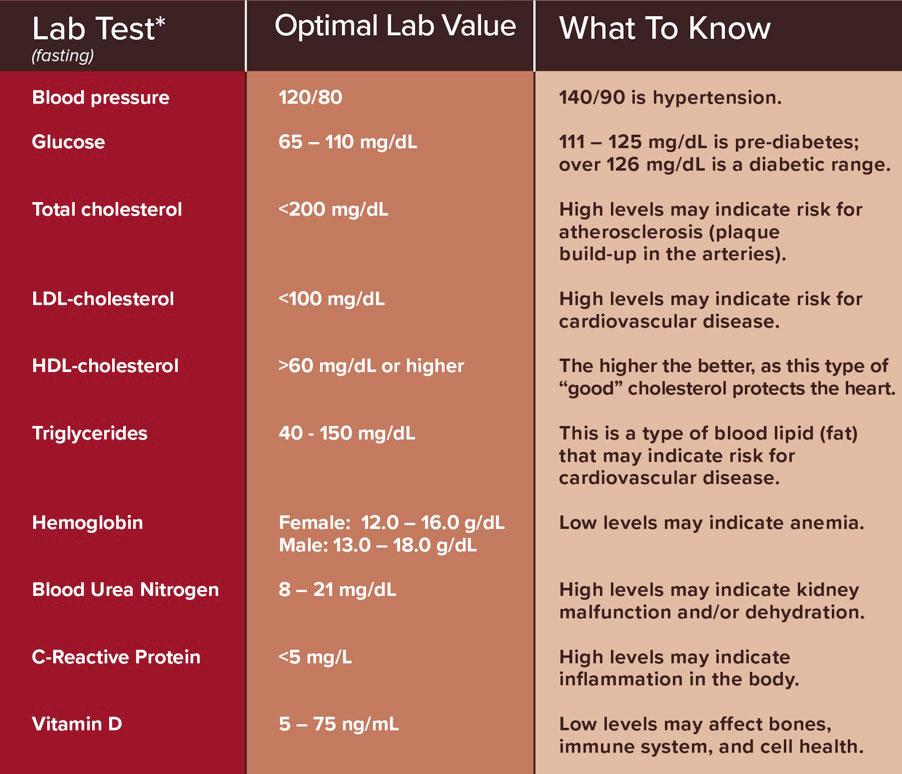Your blood contains secrets about your overall health. It can indicate whether you’re at risk for heart disease, show that your kidneys aren’t functioning correctly, or reveal that you are developing diabetes.
That’s why annual exams typically include a blood draw. In fact, blood work ranks among the most common diagnostic methods. Looking at lab results in combination with medical history can reveal risk factors for numerous diseases.
“Looking only at cholesterol or blood pressure may only tell you part of your risk profile,” says Bethany Doerfler, clinical dietitian at Northwestern Memorial Hospital.
“It is important to note that having three or more risk factors can combine into a diagnosis of metabolic syndrome,” Doerfler says. Metabolic syndrome is a precursor to cardiovascular conditions, such as heart disease, type 2 diabetes, and stroke. Therefore, knowing your numbers can empower you to lessen your disease risk.
Lifestyle choices such as eating, exercising, and sleeping can impact your lab results — for better or for worse.
“Living a healthy lifestyle is more important than any single lab test,” says Michael Bauer, MD, medical director at Northwestern Medicine Lake Forest Hospital. However, he adds, “there are certain basic labs that can be checked and monitored as part of a good preventive health regimen.”
Check below for important lab numbers. As always, consult with your healthcare provider and a registered dietitian to discuss your lab results and the best course of action for you.

Source: https://emedicine.medscape.com/article/2172316-overview. * Reference ranges will vary based on the lab that produces the test results.
Originally published in the Fall 2022/Winter 2023 print issue.

Vicki is a registered dietitian nutritionist, lifestyle nutrition expert, writer, culinary and media consultant and author of two books.










